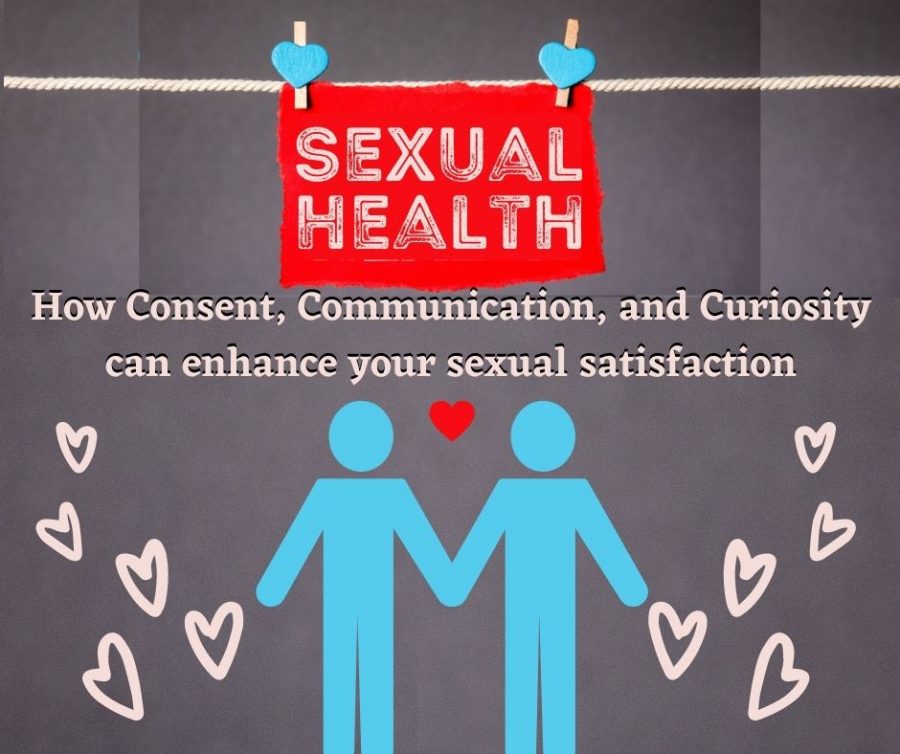Sexual health: How consent, communication and curiosity can enhance your sexual satisfaction
This article is not about some amazing technique, trick, or tip that will blow your partner’s mind in bed. Good sex is subjective, meaning everyone likes something a little different. However, there are a few principles that can help you have the satisfying sex life you deserve.
Having a satisfying and healthy sexual life is not only a basic human right. Sexual health and satisfaction have been connected to an increased quality of life, well-being, and better physical and psychological health. Sexual health is not merely the absence of disease or dysfunction. It is a state of physical, emotional, mental and social well-being in relation to sexuality. Sexual health requires a positive and respectful approach to sexuality and sexual relationships, which includes having pleasurable and safe sexual experiences, free of coercion, discrimination and violence. Cultivating a healthy and satisfying sex life begins with the practice of the three C’s: Consent, communication, and curiosity.
Consent is integral to healthy sexual interactions. Sexual consent is one’s voluntary, sober, and conscious willingness to engage in a particular sexual behavior with another person. We have all heard the “yes means yes and no means no” but sexual consent is much more complex and nuanced than that. The expression of sexual consent can be dependent on gender, the type of relationship, the type of sexual behavior one is engaging in, and also by alcohol consumption.
Expression of consent can be verbal or non-verbal, implicit or explicit. Research has shown that consent is more frequently communicated by non-verbal cues. These cues may be ambiguous, meaning that the exact same behavior of one person that indicates consent, may not indicate consent for another. Whew, consent can be messy. The best practice for consent is to actively and explicitly communicate it.
Consent should be actively communicated throughout sexual activity. Consent should be communicated if engaging in new behaviors or as sexual activity progresses with a new partner. Consent helps establish safety and comfort for everyone. Ask your partner, “would you like me to do this?” or tell your partner, “I would like you to do that”. Remember, consent can be revoked at any point. If you don’t feel comfortable doing something, tell your partner to stop. The sexual rights of all persons must be respected, protected and fulfilled. Active consent is the best way to attain and maintain sexual health.
Consent and communication go hand in hand. Sexual communication is defined as communication between partners regarding safe sex practices, sexual health, and sexual pleasure. When you explicitly tell your partner what you like and do not like, it increases the likelihood of sexual satisfaction. Communicating your wants and needs also increases intimacy and relationship satisfaction, which further increases sexual satisfaction.
It may be initially challenging or feel uncomfortable when you start practicing sexual communication. However, the more you communicate your needs with your partner, the easier it will become. Sexual communication is a continuous conversation, not a one-time event.Sexual desires and preferences may change over time. Our partners are not mind readers. Tell your partner what you like, don’t like, and how they can help make the most out of your shared sexual experience.
Finally, fostering curiosity about yourself can help increase sexual satisfaction. Self-exploration, such as masturbation and reflection on your sexual identity, helps clarify what you like and what you don’t like. The more you know and understand what is pleasurable to you, the greater chance you have of being able to communicate those desires to your partner. Additionally, knowing what you do not like or want can help safeguard against sexual coercion, abuse, and sexual experiences that are not consensual.
Self-exploration and developing greater awareness of your body can also raise the bar on what is desired from sexual experiences with others. Masturbation is a healthy and normal part of sexuality. It is the safest form of sexual pleasure and it has the potential to provide individuals with greater self-understanding, increase social competence, improve well-being, and can aid in the development of skills necessary for intimate and long-term relationships.
Self-reflection on one’s sexual identity is also an important part of attaining sexual satisfaction. Sexual identity goes beyond sexual orientation, it is your sexual values, needs, preferred modes of sexual expression and sexual activities. Knowing yourself intimately can help you make decisions that align with your values, which results in more positive sexual experiences, sexual decision-making confidence, and recognition and prioritization of your sexual needs and preferences.
Take charge of your sexual health and satisfaction. West Texas A&M University offers free condoms and dental dams, as well as STI testing, birth control, and annual wellness checks through Student Medical Services.
Darcy Webber, coordinator of health and wellness promotion at WTAMU, offers an open-door policy to students.
“[I want students to know] that they have a safe place to talk about it [sex],” said Webber. “Knowing that they have all the resources to make sure they’re making safe and cautious choices with their body and relationships is very important.”
Webber is located in the Virgil Henson Activity Center in room 121. Students should stop by if they have any questions or concerns about their sexuality.
“Don’t be afraid to ask questions. Your body is amazing. And it can do amazing things.” Webber said. “I grew up very conservative, so I get it… if you need a person to talk to, come talk to me. I’m not scared to talk about anything.”

Allexa is currently pursuing their Master of Arts in clinical psychology, with an emphasis on human sexuality. They are passionate about reducing the stigma...
















